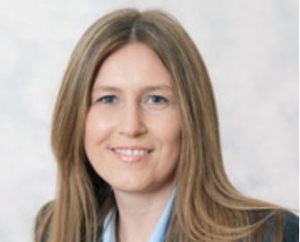
Hospital systems have their own health problems in the form of bottlenecks and “bed-blockers”, and a new branch of mathematics is devoted to helping them get better.
Professor Adele Marshall, Professor of Mathematics from Queen’s University (Belfast) is visiting Flinders University’s Dr Mark Mackay to develop their collaboration in the area of healthcare research, medical statistics and operations research (OR), including flow modelling.
Dr Mackay, of the School of Medicine, is the recipient of a Premier’s International Research Grant, which funds his research in the area.
Dr Mackay says the Premier’s International Research Fund is supporting the work of Cumberland.au, a group of clinicians and modellers interested in improving the health system through systems thinking, design thinking and operations research. Cumberland.au is working with the UK Cumberland Initiative group, of which Professor Marshall is a founding member.
Professor Marshall says there is rapidly growing international interest in using maths and stats-based analysis and modelling to address inefficiency in hospitals and health systems.
The use of modelling has the capacity to alleviate queues, “ramping” and waiting time for hospitals, she says.
“You improve the quality of care for the patient by getting them the right resources when they are needed, and it improves the efficiency for other patients as well, as it allows more thoughput in the system,” Professor Marshall says.
“More powerful modelling also reduces the risk of error and mistakes, which is a big cost for the health system.”
Models provide support for clinicians by offering them recommendations or advice, and Professor Marshall says the research has adopted an approach which sees mathematical and statistical specialists operating in collaboration with clinicians or consultants to understand the human element, and to get proper feedback about the data.
Access to “big data” and the resulting analysis has potential applications in the community setting too, Professor Marshall says.
“If we had information about GP visits, for instance, we could see a decline or a change in a condition over time that a GP might not notice visit to visit – this could be flagged for a closer look that might avoid an unplanned hospital visit,” she says.
Professor Marshall has done research in Canada and Italy as well as Northern Ireland, and says her findings suggest that differences in national health systems do not preclude the development of a general framework model that could provide broad benefits for all.
“Most health systems have a common story to tell,” Professor Marshall says.
“We’re working to see if it is possible to develop a general framework which can then be fine-tuned and adjusted to suit the particular hospital, whether it be in Adelaide, Belfast or Milan.”

